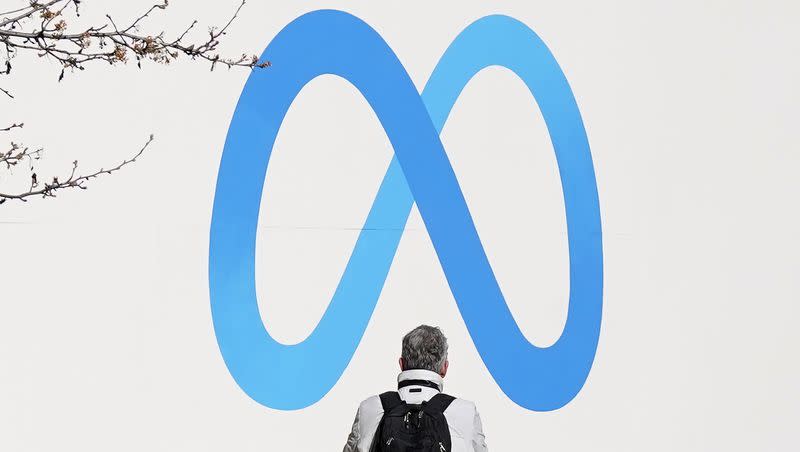Justin Trudeau responds to Meta’s Canadian social media news ban

- Oops!Something went wrong.Please try again later.
Canadian Prime Minister Justin Trudeau and other officials are calling on Facebook’s parent company Meta to reverse its recent ban on news content in the country so Canadians can get updates and reporting about wildfires and evacuations.
Tens of thousands of residents of British Columbia were under evacuation orders due to wildfires as of Sunday, according to The Associated Press, and while people there could get information from friends and government accounts on Facebook and Instagram, news outlets are blocked on Meta’s social media sites in Canada following the passage of a new law.
Meta began blocking news on Facebook and Instagram in Canada earlier this month rather than comply with the new Online News Act, which requires the company to pay news publishers for content it links to or repurposes.
Related
Why the true silent majority isn’t posting political posts on social media
Are social media ‘echo chambers’ exacerbating the political divide?
Trudeau said at a news conference Monday that Facebook had chosen “to put corporate profits ahead of insuring that local news organizations can get up to date information to Canadians.”
“Right now, in an emergency situation where up to date local information is more important than ever, Facebook is putting corporate profits ahead of people’s safety,” Trudeau said. “Instead of making sure that local journalists are fairly paid for keeping Canadians informed on things like wildfires, Facebook is blocking news from its sites. In a larger picture, that’s bad for democracy.”
Meta’s news ban has also been criticized by Canadian Transportation Minister Pablo Rodriguez and Heritage Minister Pascale St-Onge. Ollie Williams, the editor of Cabin Radio, a broadcaster in Yellowknife, Canada, blamed the government for picking a fight but said the ban is “stupid and dangerous and clearly should not be in place,” in an interview with the Canadian Broadcasting Company, or CBC.
Instead of seeing posts from news outlets, Canadian viewers blocked from the content see a note that reads, “People in Canada can’t see this content: In response to Canadian government legislation, news content can’t be viewed in Canada. Learn more.”
In a statement to CBC, Meta spokesperson Lisa Laventure said ending news availability was the only way the company could comply with the new law.
“The Online News Act is based on the incorrect premise that social media companies benefit unfairly from news content shared on our platforms, but the reverse is true,” Laventure said. “News outlets voluntarily share content on social media to expand their audiences and help their bottom line. Unfortunately, the only way we can reasonably comply with this legislation is to end news availability for people in Canada in the coming weeks.”
Related
Can Utah’s political figures ‘disagree better’ on social media?
Kids on social media: New surgeon general warning targets kids’ social media use
Social media has become an important news source, and in the U.S., 48% of adults say they get news from social media often or sometimes, according to a 2021 Pew Research Center study. Social media sites have become less friendly towards publishers, though.
Meta’s new Threads app doesn’t prioritize news content because it’s not worth the scrutiny and negativity, Instagram head Adam Mosseri said, and X, the app formerly known as Twitter, reportedly briefly slowed load times to The New York Times, Reuters and the newsletter publishing site Substack, among other sites.
Social media has become a less reliable traffic source at the top 100 news and media sites, where organic referrals from social media fell 53% in three years, according to information from the data company SimilarWeb reported by Axios. Meta has reduced traffic to media outlets from Facebook in the past several months, with some publishers seeing drops between 30% to 40% in year-over-year referral traffic or higher, according to CNN.
Meta temporarily blocked access to news content in Australia in 2021 but lifted the ban after reaching a deal with the Australian government and publishers.

